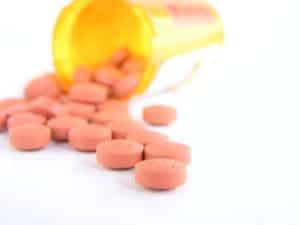Last Updated on October 17, 2024 by The Health Master
Baldness
Living with baldness also called alopecia areata (AA) can be emotionally challenging, with sudden hair loss leaving individuals with circular bald patches.
However, a recent study has brought a glimmer of hope, revealing the promising results of Tofacitinib, a drug commonly used for rheumatoid arthritis and ankylosing spondylitis, in treating this autoimmune disorder.
The Study Unveiled
Published in the Indian Dermatology journal last week, the study conducted by Dr. Kabir Sardana from the dermatology department of RML Hospital showcased a remarkable success rate.
A staggering 94.1 percent of AA patients treated with Tofacitinib exhibited complete or near-complete response.
Demographics and Response Rates: Baldness
The study encompassed patients with a mean age of 17.6 years, ranging from 5 to 34 years, revealing a male-to-female ratio of 8:1.
Among the noteworthy findings, 23.5 percent achieved full hair regrowth within eight months, maintaining it on a 5mg alternate-day dosage without any relapse.
Safety and Efficacy: Tofacitinib
Dr. Sardana emphasized the safety and efficacy of Tofacitinib, especially in severe cases of AA, alopecia universalis (AU), and alopecia totalis (AT).
The drug proved effective for patients who had been unresponsive to other treatment modalities. Notably, Tofacitinib demonstrated safety, with side effects limited to elderly individuals and those with heart issues.
Comparison with Alternatives: Tofacitinib vs. Oral Steroids
In comparison to oral steroids, a widely used alternative, Tofacitinib emerged as a remarkably safe option.
Dr. Sardana pointed out that autoimmune disorders tend to recur, and Tofacitinib provides a viable solution without the extensive side effects associated with oral steroids.
Study Methodology
The primary objective of the study was to evaluate the complete response rates to Tofacitinib monotherapy in severe and recalcitrant AA, AT, and AU patients.
Utilizing the Severity of Alopecia Tool (SALT) score, commonly employed for quantifying scalp hair loss in clinical trials, the study aimed to provide a comprehensive understanding of Tofacitinib’s efficacy.
Patient Profiles and Prior Treatments
The study delved into the institutional records of 17 patients with severe or refractory AA, AT, and AU.
Prior to Tofacitinib, patients had received systemic glucocorticoids and immunosuppressive agents.
The mean SALT score before initiating Tofacitinib was 74.23, setting the baseline for evaluating treatment effectiveness.
Dosing and Duration
The mean dose of Tofacitinib administered was 13.23mg, ranging from 10-15mg, over an average duration of 9.2 months.
The latest percentage change in SALT scores ranged from 70.6 percent to 100 percent, with an impressive average of 91.5 percent.
Future Prospects
While the study underscores Tofacitinib’s immediate success, it calls for additional research to assess the long-term efficacy of the drug.
This signals hope for continuous advancements in treating autoimmune disorders and potentially unlocking more solutions for those in need.
Conclusion: Tofacitinib – A Game-Changer in Baldness
In conclusion, Tofacitinib’s triumph in treating alopecia areata is a beacon of hope for individuals facing the challenges of sudden hair loss towards the baldness.
The study’s findings illuminate a new path in managing severe cases of AA, AT, and AU, offering a safe and effective alternative to conventional treatments.
FAQs
- Is Tofacitinib only effective for recent cases of alopecia areata?
- No, Tofacitinib has shown efficacy in various cases, but its success may vary based on individual conditions.
- Are there any serious side effects associated with Tofacitinib?
- Tofacitinib is considered remarkably safe, with side effects observed mainly in elderly individuals and those with heart issues.
- How does Tofacitinib compare to oral steroids in treating alopecia areata?
- Tofacitinib offers a safer alternative to oral steroids, which often come with more side effects and potential abuse.
- Can Tofacitinib be used as a long-term solution for alopecia areata?
- Further research is needed to determine the long-term efficacy of Tofacitinib in treating alopecia areata.
- Where can I get access to Tofacitinib treatment?
- Consult with a healthcare professional to discuss the suitability of Tofacitinib for your specific condition.
Disclaimer: This article contains information derived from the source mentioned below. Our team utilized an AI language model to rewrite and present the news or article in a unique format.
Disclaimer: This content, including advice, provides generic information only. It is in no way a substitute for a qualified medical opinion. Always consult a specialist or your own doctor for more information. The Health Master does not claim responsibility for this information.
-
What is the main cause of baldness?
The main cause of baldness is a combination of genetic factors, hormonal changes, and aging.
-
What causes men to go bald?
The main cause of male pattern baldness is a combination of genetic factors and hormonal changes, specifically the hormone dihydrotestosterone (DHT). DHT shrinks hair follicles over time, resulting in thinner and shorter hair strands. Other factors such as aging, certain medical conditions, and lifestyle choices can also contribute to hair loss in men.
-
Can a bald man grow hair back?
Yes, it is possible for a bald man to grow hair back. There are various treatments available such as medications, hair transplants, and laser therapy that can help stimulate hair growth and promote regrowth in bald areas. It is best to consult with a dermatologist or hair specialist to determine the most suitable treatment option based on individual circumstances.
-
How can I reverse baldness naturally?
While there is no guaranteed way to reverse baldness naturally, here are a few tips that may help promote hair growth:
1. Maintain a balanced diet: Consume a diet rich in vitamins, minerals, and proteins to support healthy hair growth.
2. Practice good hair hygiene: Keep your scalp clean and free from excessive oil or dandruff by regularly washing it with a mild shampoo.
3. Avoid harsh styling and treatments: Minimize the use of heat styling tools, chemical treatments, and tight hairstyles that can damage the hair follicles.
4. Massage your scalp: Gently massaging your scalp can help improve blood circulation and stimulate hair follicles.
5. Consider natural remedies: Some natural remedies like applying onion juice, coconut oil, aloe vera, or rosemary oil to the scalp may help promote hair growth, but their effectiveness varies from person to person.
6. Manage stress: Chronic stress can contribute to hair loss, so finding effective stress management techniques such as exercise, meditation, or relaxation techniques may be beneficial.
It’s important to note that individual results may vary, and it’s always recommended to consult with a healthcare professional or a dermatologist for personalized advice.
Biometric cards for Pharmacists for efficient drug dispensing
WHO Guideline: To tackle acute malnutrition in children under 5
Antibiotic Resistance Crisis in India and Role of Government
Understanding Diabetes: Tips from WHO
Surgeons Break New Ground: First Eye Transplant Raises Hope
Phase 3 Trial: Navigating Challenges in Lung Cancer Treatment











